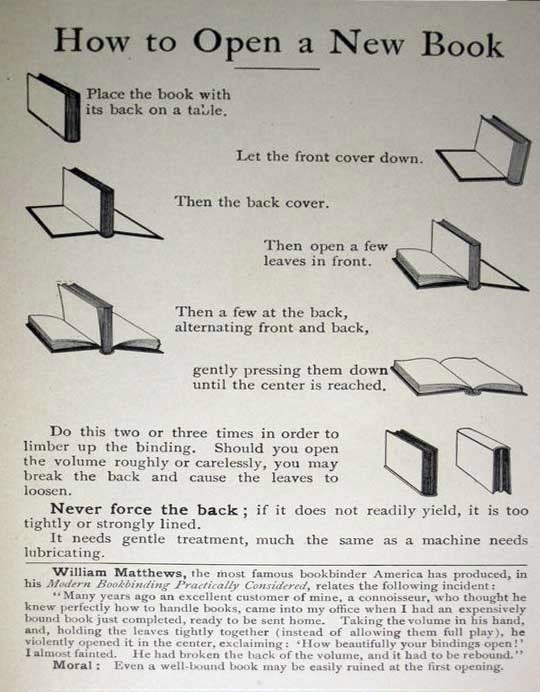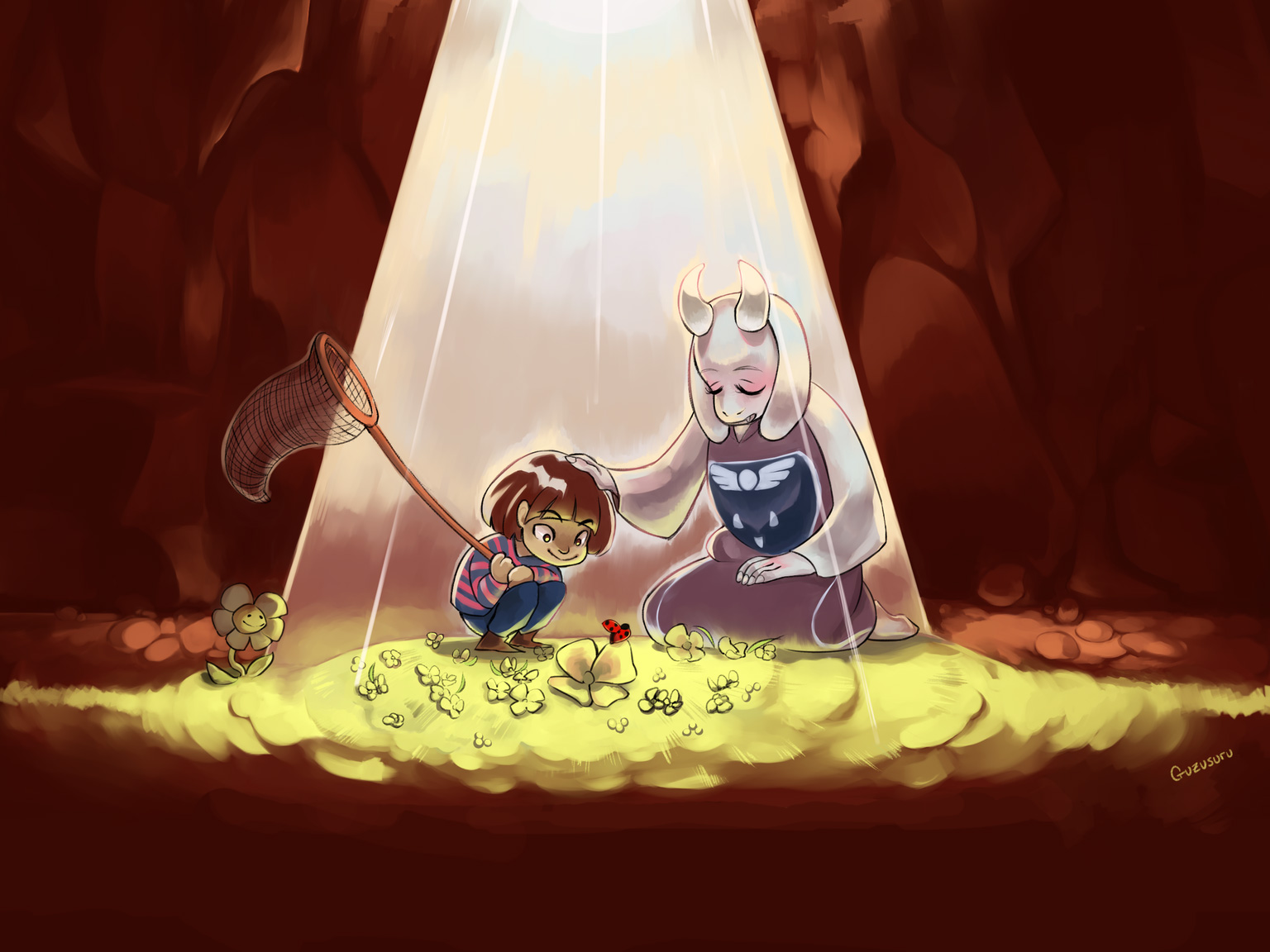
Like a lot of roleplaying games, Undertale asks you to become a child. When you fall down a hole into an underworld populated with monsters, your path seems clear: set off on a brave journey across a hostile land, destroy the evil monsters you meet along the way, and emerge a hero.
Then, almost immediately, you meet a monster who doesn't want to fight. Its name is Whimsum and it is very frightened, ready to burst into tears at the mere sight of you. So it's your choice, hero: do you spare it or cut it into pieces?
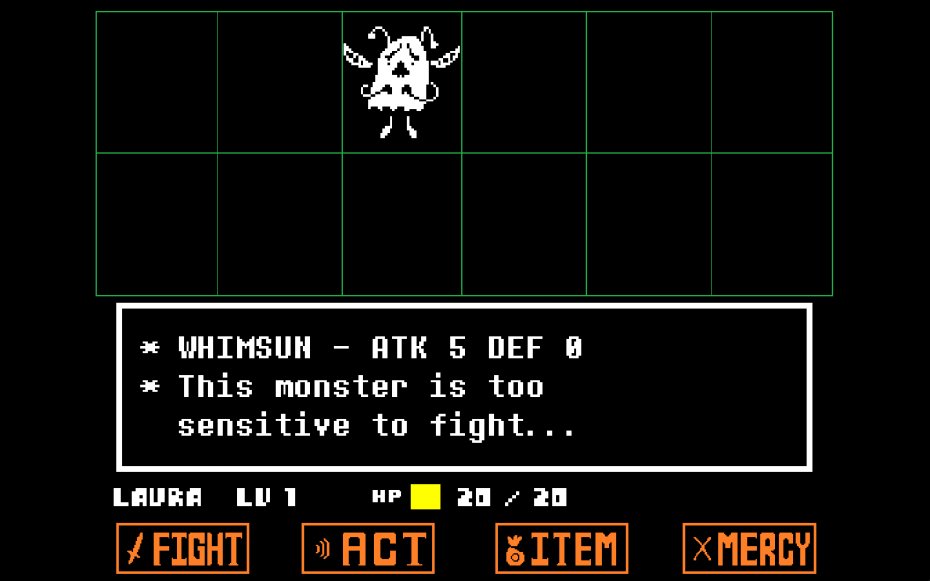
Welcome to Undertale, a game where every battle is a choice between the complex morality of compassion, and the simplicity of the sword.
Other monsters you encounter are more aggressive, but just as complicated. One is simply depressed, weeping tears that drip down the screen and wound you drop by drop. One is deeply insecure and just wants someone to laugh at its jokes. One lovingly coats you in lava, believing for all the world that its fiery ministrations are healing you. Another, you're told, simply has a hard life.
Whatever else a monster is in this world, it's also a person, and every foe you encounter has its own fears, anxieties, and dreams. Maybe they're attacking you, as bullies and trolls often do, because they're hurting as well. Or maybe they're attacking you because they've always been told that monsters and humans are enemies, and that they're supposed to kill each other. But hey, isn't that why you're fighting them too?
You can try to talk to them, to understand and defuse the problems that are drawing them into the conflict, or you can kill them. But choose wisely: violence has consequences, and the damage you do as make your way through the world will not go unnoticed; even hitting the reset button may not be enough to wipe it clean. And Even ignoring the pain of others is its own sort of damage, and will leave its own ripples across the interpersonal landscape of the game.
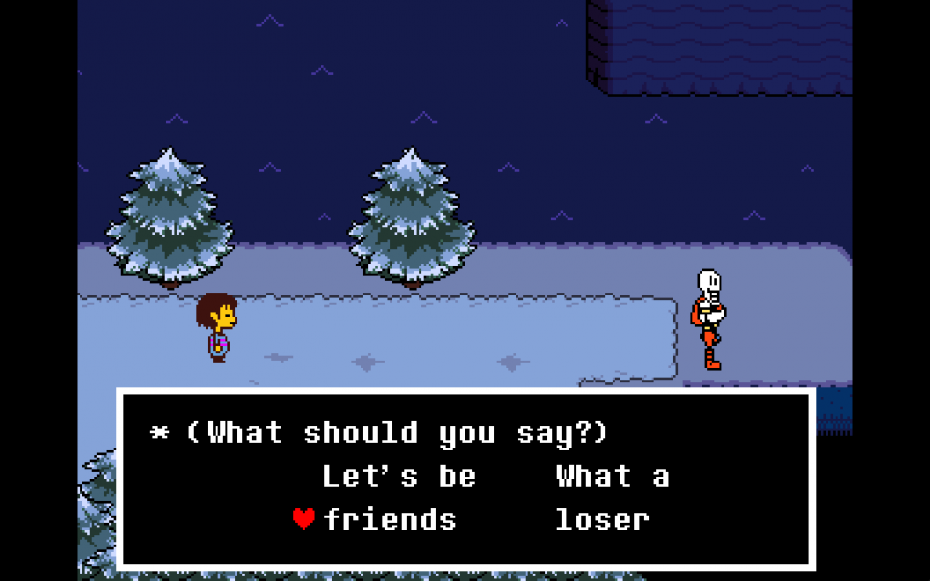
Undertale was originally funded on Kickstarter, where developer Toby Fox crowd funded over $50,000 for his pitch: a role-playing game where no one has to get hurt. The game is deeply influenced by Earthbound, the bizarre and beloved 1994 Super Nintendo RPG about a team of children who save the world from a malevolent alien force.
Fox, who also wrote the impressive soundtrack , for the game, tells me by email that Undertale was Undertake was also inspired by the Japanese roleplaying game Shin Megami Tensei as well. "It , because "it always interested me that you could talk to monsters to avoid conflicts," says Fox. "But conflicts. But the conversations were often kind of repetitive, and if you screwed them up, fighting became your only option. I wanted to create a system that satisfied my urge for talking to monsters, more or less."
While Earthbound has a well-deserved reputation for being funny and weird, Undertale is both funnier and weirder; every screen feels packed with new ideas, jokes, and odd little character notes, as though it were was the result of an intense brainstorming session where the outcome was always "screw it, let's use it all."
Despite the retro feel, it's much in a 21st century game, and not just because it's metatextually aware of its predecessors. One of the first items you receive in the game is a mobile phone, which allows the characters you meet to call you throughout your adventure. Later on, you can even receive text messages and read social media updates, which feel so tonally on point that it's hard to believe they weren't ripped straight from Twitter.
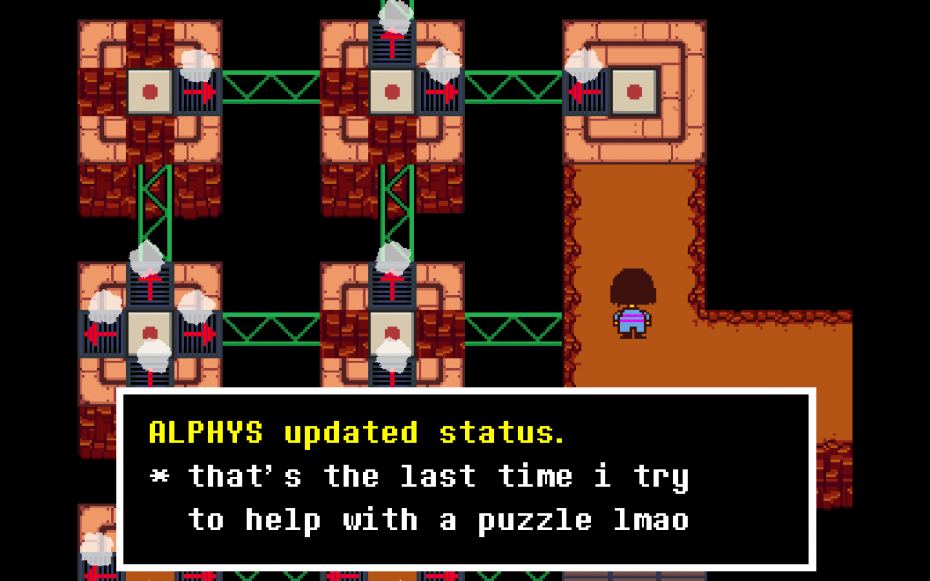
Like Earthbound, it's determined to subvert expectations about roleplaying games, taking the established tropes of the genre and turning them upside down with parodies, fakeouts and unexpected left turns. Many, if not most of the puzzles in the game aren't puzzles so much as they are jokes about puzzles, and even the battles often feel like interactive gags; the highlight of the game is a romantic interlude, where you essentially have a battle date with a foe turned love interest.
But beware: there's a surprising depth of feeling beneath the humor, and it can go from rimshots to ruthlessly sad at the drop of a hat. The fights throughout Undertale are more aptly described as either physical or emotional conflicts—your choice.
Both violence and non-violence are negotiated through the same menu based battle system; if of you choose violence you "fight"; if you choose non-violence, you "act." The terminology feels meaningful. Refusing to attack your opponent isn't a passive decision, but an active one that requires just as much strategy to execute successfully, if not more.
When you defend against attacks, a small screen will pop up where you play a mini-game and navigate a small red heart to avoid a series of projectiles. They're often thematic (a frog enemy might accost you with a swarm of flies) and if you face multiple foes at the same time they combine together in elaborate and deadly patterns.
"Violence is, by nature, a one-size-fits-all solution in most games," says Fox. "For menu-based pacifism to be equally fun, it has to be more complicated."
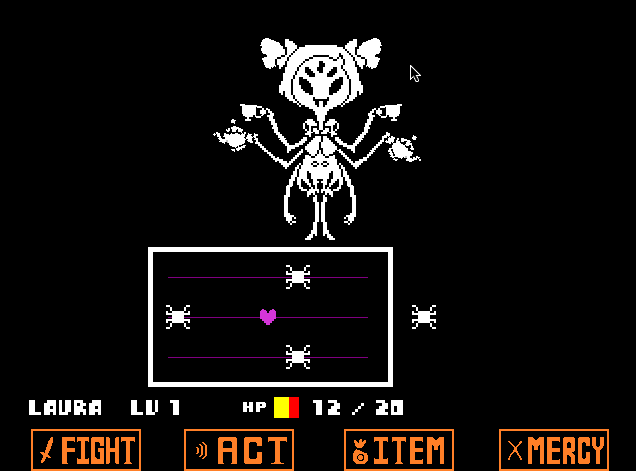
Shortly before I started playing the game, Undertale, I watched a YouTube video of a little boy at a party, facing a Spider-Man piñata. Someone has given him a bat to beat it into pieces, but he can't quite seem to bring himself to do it. Instead, after gently tapping the hollow hero a few times with the end of the bat, he finally drops the weapon to the ground and envelops it in a hug.
Undertale feels a lot like that. Or at least, it does if you want it to.
You're a child in Undertale the game as well, and in one town you meet another child—a monster, of course—who becomes your friend and pops up throughout several times during your journey. When he learns that you're a human, and by all rights his mortal foe, he seems unable to muster the xenophobic loathing he knows he's supposed to feel.
"I guess that makes us enemies or something," he sighs. "Can you say something mean so that I can hate you?" He doesn't want to, really. He just doesn't feel like he has a choice.
https://youtu.be/c0w24DLClOgMany of the battles you find yourself drawn into are consequences of other violent or cruel acts from the past, and if you do choose to kill the monsters you encounter, know that it will have long-lasting impacts consequences as well.
Yes, the monsters who attack you can hurt you, even kill you. But even if you strike back, that doesn't necessarily mean you have to finish the job; once they've been wounded, you have the option to let them run away. Maybe no jury would convict you, maybe you tell yourself it's self-defense. But do you really want to conduct yourself like a walking version of some shitty video game Stand Your Ground law, or do you aspire to something better?
After all, the fundamental premise of the game is that no monster you encounter is so committed to attacking you that they can't be talked out of it. So what do you really accomplish by killing them?
The simple answer is that you gain experience points and levels and power, much as the little boy would gain candy from cracking open the piñata body of his papier maché friend. This is the way most roleplaying games are set up: with systems that demand we destroy the people and things around us in order to accomplish our goals.
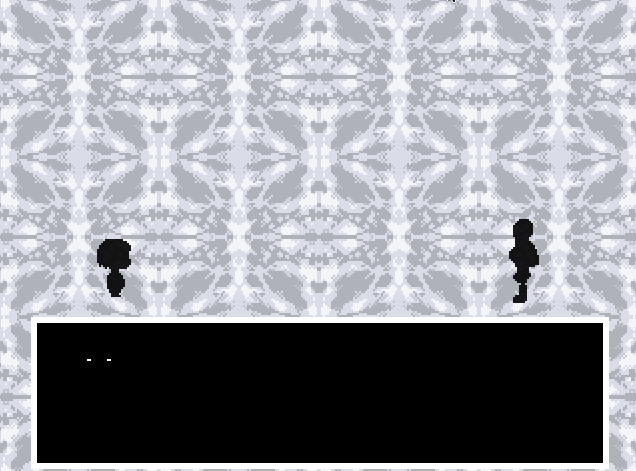
Fox says that when some people first hear about Undertale, they feel "defiant of this perceived obligation to play non-violently. I have seen a lot of people say 'well, I'm just going to kill everyone anyway! They're just video game characters!'" When they actually play the game, however, their contrarianism doesn't always work out the way they planned, or at least feel as satisfying as they hoped.
Recently, I recommended Undertale to the biggest Earthbound fan I know, though he initially seemed nonplussed by the idea of non-violence. "I want to fight though," he said, "because I am a warrior!" I thought about that a lot as I played through Undertale, a game that seems designed precisely to challenge that notion.
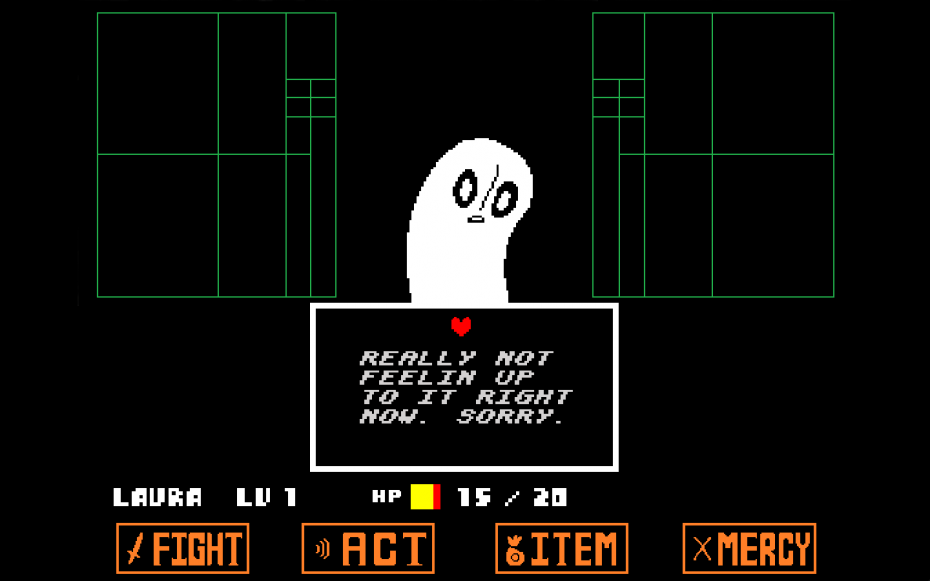
We love stories about heroes because we love to see ourselves as the heroes of our own story; more often than not we define heroism not by how we rise to meet difficult circumstances, but by how many villains we destroy.
And so we create villains—pinatas, rather than people—who are so de facto evil that they deserve no empathy, and we create systems and stories that give us seemingly no choice but to strike them down. We do it in games, we do it in our political and religious and cultural conflicts, and we do it in our lives.
Undertale interacts with its world through a battle system in part to expose the willful, jingoistic lie that stories and systems like this so often conceal: that violence is the only solution to conflict, that committing it makes us stronger, and that the people we attack are worthy of whatever harm we wish to inflict.
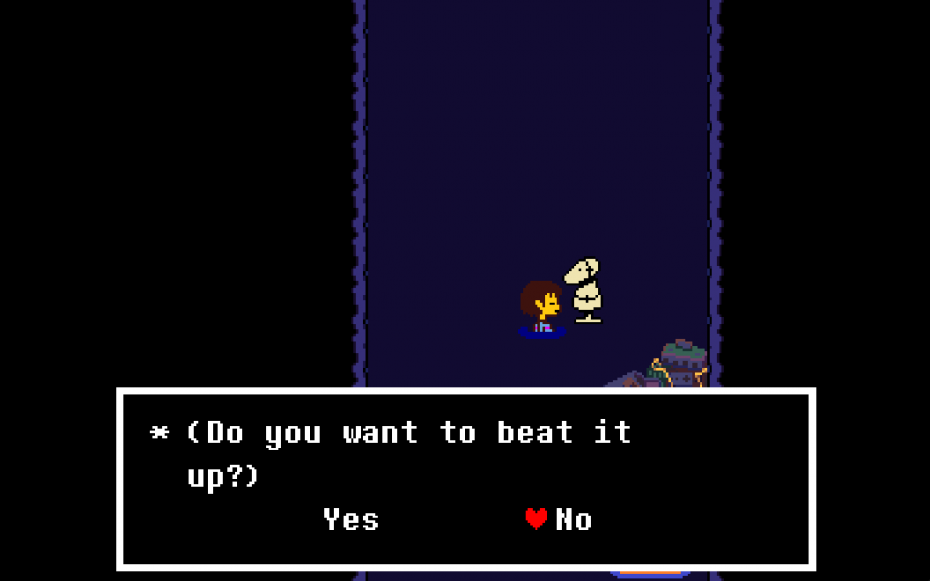
During the introduction to the game, we're offered a pithy backstory for the feud that ended with the humans trapping the monsters beneath the earth, one that feels torn from the pages of the victor's history book. We're told that humans and monsters once lived side by side until "one day, war broke out between the two races." It's the sort of passive construction that aspires to objectivity but mostly just conceals agency, at least until you start digging deeper.
Your most persistent antagonist, an imposing warrior named Undyne, hunts you throughout the game because she believes that your life—and specifically, your death—might be the key to the salvation of her people. She might be right. Who's to say her quest is any less noble than yours?
"We all know deep down that freedom is coming, don't we?" muses an anthropomorphic rabbit who runs an item shop, as you peruse her wares. She dreams quietly of the day when the barrier with the human overworld will fall and monsters will finally walk in the sun again.
Who's to say they shouldn't?
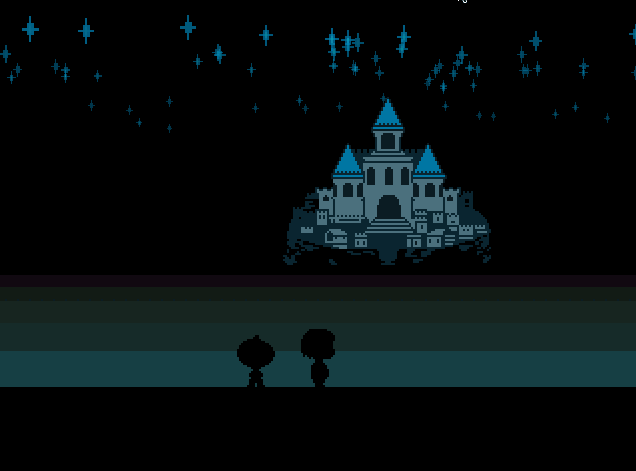
Undertale is on sale at Steam for Windows and Mac, and there's a free demo if you'd like to try it out.

An amusing, but telling collection of generic logo concepts, trite design elements and hackneyed type. [gtgraphics.org; Archive.org cache; via]
This fantastic short film dramatically re-enacts an incredible court scene. Watch through to the end. It is worth it.







